Disaster Book Club is an informal book club, that meets to enjoy beverages and company and discuss books that feature various disasters we have faced in the world or have the potential to face. Join our Disaster Book Club Online where we use virtual meeting technology to discuss the books we read. Use the form on the right to join our mailing list! Disaster Book Club meets approximately four times a year so the time commitment is fairly minimal, especially since we understand life happens - there's no shame if you aren't able to read the books before we meet. For additional information about Disaster Book Club, please contact GinnyS@AllClearEMG.com.
Book Club List
May 2023
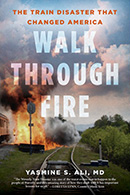
Walk Through Fire: The Train Disaster that Changed America by Yasmine Ali
On the night of February 22, 1978, a devastating freight train derailment drastically altered Waverly, Tennessee, and its place in history. This was one of the worst train explosions of the twentieth century, killing 16 people, injuring hundreds more, and causing millions of dollars in damage.
What could have been dismissed as a single community's terrible misfortune instead became the catalyst for radical change, including the formation of FEMA, much-needed reforms in emergency response training, and the creation and enforcement of national and state safety regulations. Response to the disaster reshaped American infrastructure and laid the groundwork for the future of emergency management and disaster relief . . . and yet most Americans have never heard of Waverly.
Dr. Yasmine S. Ali, an award-winning medical writer and Waverly native, sets out to change this in Walk Through Fire, drawing from over a decade of meticulous research and interviews with survivors, first responders, and other firsthand accounts, including those of her own parents, first-generation Americans who were on call at the local hospital that treated the victims. Ali weaves a compelling narrative of small-town tragedy set against the broader backdrop of U.S. railroad history, rural healthcare, and other elements of American infrastructure that played a part in the creation—and the aftermath—of the Disaster.
A tribute to resiliency and a call to action, Walk Through Fire tells the harrowing story of the Waverly Train Disaster from the perspectives of those who survived it, and those who still feel its impact today, illuminating how much a nation still has to learn from one small town in Tennessee.
PUBLISHER'S PAGE
February 2023
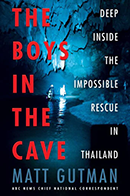
February 17, 2023
5:00 - 6:30pm MT
The Boys in the Cave: Deep Inside the Impossible Rescue in Thailand by Matt Gutman
From award-winning ABC News Chief National Correspondent Matt Gutman, and written using exclusive interviews and information comes the definitive account of the dramatic story that gripped the world: the miracle rescue of twelve boys and their soccer coach trapped in a flooded cave miles underground for nearly three weeks—a pulse-pounding page-turner by a reporter who was there every step of their journey out.
After a practice in June 2018, a Thai soccer coach took a dozen of his young players to explore a famous but flood-prone cave. It was one of the boys’ birthday, but neither he nor the dozen resurfaced. Worried parents and rescuers flocked to the mouth of a cave that seemed to have swallowed the boys without a trace. Ranging in age from eleven to sixteen, the boys were all members of the Wild Boars soccer team. When water unexpectedly inundated the cave, blocking their escape, they retreated deeper inside, taking shelter in a side cavern. While the world feared them dead, the thirteen young souls survived by licking the condensation off the cave’s walls, meditating, and huddling together for warmth.
In this thrilling account, ABC News Chief National Correspondent Matt Gutman recounts this amazing story in depth and from every angle, exploring their time in the cave, the failed plans and human mistakes that nearly doomed them, and the daring mission that ultimately saved them. Gutman introduces the elite team of volunteer divers who risked death to execute a plan so risky that its American planners admitted, “for us, success would have meant getting just one boy out alive.” He takes you inside the meetings where life and death decisions were grimly made and describes how these heroes pulled off an improbable rescue under immense pressure, with the boys’ desperate parents and the entire world watching. One of the largest rescues in history was in doubt until the very last moment.
Matt Gutman covered the story intensively, went deep inside the caves himself, and interviewed dozens of rescuers, experts and eye-witnessed around the world. The result is this pulse-pounding page-turner that vividly recreates this extraordinary event in all its intensity—and documents the ingenuity and sacrifice it took to succeed.
PUBLISHER'S PAGE
September 2021
Disaster Heroes - Invisible Champions of Help, Hope and Healing by Suzanne Bernier
The book, Disaster Heroes - Invisible Champions of Help, Hope and Healing tells the stories of ordinary men, women, and children who have done remarkable things to help respond, recover, and rebuild following some of the world’s most significant modern disasters.
Disaster Heroes focuses on everyday people – the hidden heroes – whose bravery and compassion seemingly arrived out of nowhere. Many of these uplifting stories cross cultures, countries, and continents, highlighting the fact there are no borders when it comes to helping others.
For every disaster reported in the media, there are thousands of inspiring and uplifting stories we don’t ever hear about. Disaster Heroes seeks to change this by highlighting and empowering helpers and heroes from around the world to make a difference following disasters.
BOOK'S PAGE
May 2021
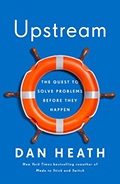
Upstream by Dan Heath
So often in life, we get stuck in a cycle of response. We put out fires. We deal with emergencies. We stay downstream, handling one problem after another, but we never make our way upstream to fix the systems that caused the problems. Cops chase robbers, doctors treat patients with chronic illnesses, and call-center reps address customer complaints. But many crimes, chronic illnesses, and customer complaints are preventable. So why do our efforts skew so heavily toward reaction rather than prevention?
Upstream probes the psychological forces that push us downstream—including “problem blindness,” which can leave us oblivious to serious problems in our midst. And Heath introduces us to the thinkers who have overcome these obstacles and scored massive victories by switching to an upstream mindset. One online travel website prevented twenty million customer service calls every year by making some simple tweaks to its booking system. A major urban school district cut its dropout rate in half after it figured out that it could predict which students would drop out—as early as the ninth grade. A European nation almost eliminated teenage alcohol and drug abuse by deliberately changing the nation’s culture. And one EMS system accelerated the emergency-response time of its ambulances by using data to predict where 911 calls would emerge—and forward-deploying its ambulances to stand by in those areas.
Upstream delivers practical solutions for preventing problems rather than reacting to them. How many problems in our lives and in society are we tolerating simply because we’ve forgotten that we can fix them?
PUBLISHER'S PAGE
September 2020
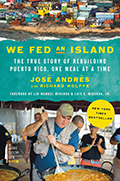
We Fed an Island The True Story of Rebuilding Puerto Rico, One Meal at a Time by José Andrés
The true story of how a group of chefs fed hundreds of thousands of hungry Americans after Hurricane Maria and touched the hearts of many more.
Chef José Andrés arrived in Puerto Rico four days after Hurricane Maria ripped through the island. The economy was destroyed and for most people there was no clean water, no food, no power, no gas, and no way to communicate with the outside world.
Andrés addressed the humanitarian crisis the only way he knew how: by feeding people, one hot meal at a time. From serving sancocho with his friend José Enrique at Enrique’s ravaged restaurant in San Juan to eventually cooking 100,000 meals a day at more than a dozen kitchens across the island, Andrés and his team fed hundreds of thousands of people, including with massive paellas made to serve thousands of people alone. At the same time, they also confronted a crisis with deep roots, as well as the broken and wasteful system that helps keep some of the biggest charities and NGOs in business.
Based on Andrés’s insider’s take as well as on meetings, messages, and conversations he had while in Puerto Rico, We Fed an Island movingly describes how a network of community kitchens activated real change and tells an extraordinary story of hope in the face of disasters both natural and man-made, offering suggestions for how to address a crisis like this in the future.
Beyond that, a portion of the proceeds from the book will be donated to the Chef Relief Network of World Central Kitchen for efforts in Puerto Rico and beyond.
PUBLISHER'S PAGE
February 2020
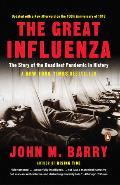
The Great Influenza by John M. Barry
The definitive account of the 1918 Flu Epidemic. “Monumental”-Chicago Tribune.
At the height of WWI, history's most lethal influenza virus erupted in an army camp in Kansas, moved east with American troops, then exploded, killing as many as 100 million people worldwide. It killed more people in twenty-four months than AIDS killed in twenty-four years, more in a year than the Black Death killed in a century. But this was not the Middle Ages, and 1918 marked the first collision of science and epidemic disease. Magisterial in its breadth of perspective and depth of research and now revised to reflect the growing danger of the avian flu, The Great Influenza is ultimately a tale of triumph amid tragedy, which provides us with a precise and sobering model as we confront the epidemics looming on our own horizon. John M. Barry has written a new afterword for this edition that brings us up to speed on the terrible threat of the avian flu and suggest ways in which we might head off another flu pandemic.
PUBLISHER'S PAGE
August/September 2019
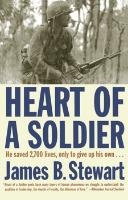
Heart of a Soldier by James B. Stewart
From Pulitzer Prize winner James B. Stewart comes the extraordinary story of American hero Rick Rescorla, Morgan Stanley security director and a veteran of Vietnam and the British colonial wars in Rhodesia, who lost his life on September 11.
Heart of a Soldier is the extraordinary story of war, love and comradeship, danger and heroism, told by a Pulitzer Prize winner who is one of our finest writers.
When Rick Rescorla got home from Vietnam, he tried to put combat and death behind him, but he never could entirely. From the day he joined the British Army to fight a colonial war in Rhodesia, where he met American Special Forces’ officer Dan Hill who would become his best friend, to the day he fell in love with Susan, everything in his remarkable life was preparing him for an act of generosity that would transcend all that went before.
Heart of a Soldier is a story of bravery under fire, of loyalty to one’s comrades, of the miracle of finding happiness late in life. Everything about Rick’s life came together on September 11. In charge of security for Morgan Stanley, he successfully got all its 2,700 men and women out of the south tower of the World Trade Center. Then, thinking perhaps of soldiers he’d held as they died, as well as the woman he loved, he went back one last time to search for stragglers.PUBLISHER'S PAGE
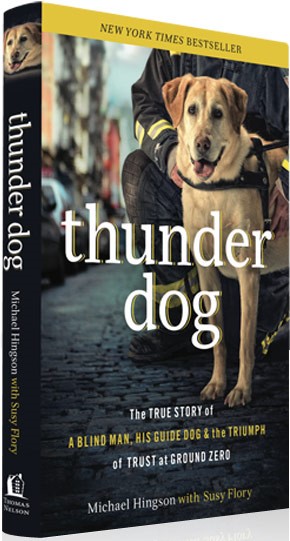
Thunder Dog by Michael Hingson with Suzy Flory
The true story of a blind man, his guide dog & the triumph of trust.
Every moment in Michael Hingson's and Roselle's lives seemed to lead up to this day. When one of four hijacked planes flew into the World Trade Center's north tower on September 11, 2001, Michael Hingson, a district sales manager for a data protection and network security systems company, was sitting down for a meeting. His guide dog, Roselle, was at his feet. Paired for twenty-one months, man and dog spent that time forging a bond of trust, much like police partners who trust their
lives to each other.
Michael couldn't see a thing, but he could hear the sounds of shattering glass, falling debris, and terrified people flooding around him and Roselle. However, Roselle sat calmly
beside him. In that moment, Michael chose to trust Roselle's judgment and not to panic. They were a team.
Thunder Dog is a story that will forever change your spirit and your perspective. It illuminates Hingson's lifelong determination to achieve parity in a sighted world and how the rare trust between a man and his guide dog can inspire an unshakable faith in each one of us.AUTHOR'S PAGE
April/May 2019
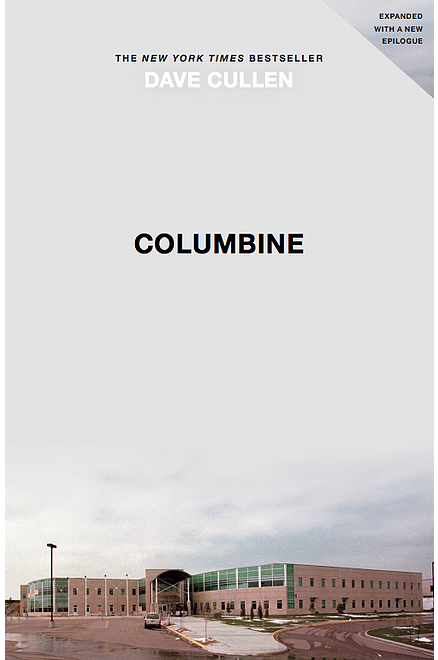
Columbine by Dave Cullen
I arrived at Columbine the first hour of the shooting, and spent ten years on this book. I was driven by two questions: why did they do it, and how did this shattered community recovery?
My surprise was that most of what we "know" about Columbine was wrong. It wasn't about jocks, Goths or the Trench Coat Mafia. Eric Harris and Dylan Klebold didn't even envision a school shooting. They ridiculed school shooters as losers. Eric built his bombs to dwarf Oklahoma City. They planned to mow down survivors fleeing the the burning rubble for "fun." And it would end with more bombs.
The key to comprehending Columbine is letting go of our concept of "the killers." Spend a few pages with Dylan and Eric, and you'll discover two starkly disparate boys. Their motives and personalities were poles apart. Eric Harris was monstrous; Dylan Klebold was loving but bitterly angry inside — a tender boy torn apart. Dylan was truly a revelation.
The survivors proved equally illuminating. Their stories are surprisingly uplifting — such a refreshing contrast to Eric Harris and Dylan Klebold. Thousands of students and parents faced the unthinkable; most overcame it, many in extraordinary ways. I was amazed by their spirit and by stunning moments of redemption. Hopefully, those shine through in Columbine. Each survivor's recovery is unique, but they consistently tell me the greatest lesson other communities can learn is: Don't rush the healing!
AUTHOR'S PAGE
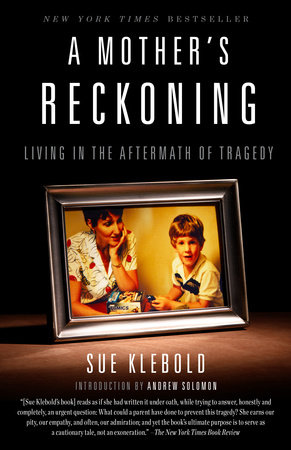
A Mother's Reckoning by Susan Klebold
My son was Dylan Klebold, one of the two shooters at Columbine High School in 1999.
I would gladly give my life to reverse what happened that day and yet I know that nothing I can do or say could ever atone for Dylan's choices, choices that I have spent the last sixteen years trying to understand. I wish I had known then what I know now: that it was possible for everything to seem fine with him when it was not, and that behaviors I mistook as normal for a moody teenager were actually subtle signs of psychological deterioration.
Although it is very hard for me to share my story—to lay bare my heart and the inner workings of my family—I feel a moral imperative to share the insights I have gleaned to help other families see the signs when their children need help.
Today I am an advocate for mental health awareness, research and suicide prevention. By writing A Mother;'s Reckoning, I hope to shine a light on these important issues. Through my Colorado public benefit corporation (PBC), Vention Resources, Inc., PBC, all author profits that I or my PBC would have ordinarily received from the publication of this book, after reasonable expenses, will be used to fund charitable organizations who share my goals and strive to address these concerns, including Mental Health America (MHA), National Alliance on Mental Illness (NAMI), American Foundation for Suicide Prevention (AFSP), American Association of Suicidology (AAS) and Brain & Behavior Research Foundation. AUTHOR'S PAGE
January 2019
Paradise Built in Hell by Rebecca Solnit
The most startling thing about disasters, according to award-winning author Rebecca Solnit, is not merely that so many people rise to the occasion, but that they do so with joy. That joy reveals an ordinarily unmet yearning for community, purposefulness, and meaningful work that disaster often provides. A Paradise Built in Hell is an investigation of the moments of altruism, resourcefulness, and generosity that arise amid disaster’s grief and disruption and considers their implications for everyday life. It points to a new vision of what society could become-one that is less authoritarian and fearful, more collaborative and local.PUBLISHER'S PAGE
Station Eleven by Emily St. John Mandel
One snowy night a famous Hollywood actor slumps over and dies onstage during a production of King Lear. Hours later, the world as we know it begins to dissolve. Moving back and forth in time—from the actor's early days as a film star to fifteen years in the future, when a theater troupe known as The Traveling Symphony roams the wasteland of what remains—this suspenseful, elegiac, spellbinding novel charts the strange twists of fate that connect five people: the actor, the man who tried to save him, the actor's first wife, his oldest friend, and a young actress with the Traveling Symphony, caught in the crosshairs of a dangerous self-proclaimed prophet. Sometimes terrifying, sometimes tender, Station Eleven tells a story about the relationships that sustain us, the ephemeral nature of fame, and the beauty of the world as we know it.AUTHOR'S PAGE
November 2018
Book Club Outing: Come From Away the musical
Broadway's COME FROM AWAY is a Best Musical winner all across North America!
This New York Times Critics' Pick takes you into the heart of the remarkable true story of 7,000 stranded passengers and the small town in Newfoundland that welcomed them. Cultures clashed and nerves ran high, but uneasiness turned into trust, music soared into the night, and gratitude grew into enduring friendships.
Don't miss this breathtaking new musical written by Tony® nominees Irene Sankoff and David Hein, and helmed by this year's Tony-winning Best Director, Christopher Ashley. Newsweek cheers, "It takes you to a place you never want to leave!"
On 9/11, the world stopped.
On 9/12, their stories moved us all.
MUSICAL'S PAGE
September 2018
The Hot Zone by Richard Preston
The Terrifying True Story of the Origins of the Ebola Virus
The bestselling landmark account of the first emergence of the Ebola virus.
A highly infectious, deadly virus from the central African rain forest suddenly appears in the suburbs of Washington, D.C. There is no cure. In a few days 90 percent of its victims are dead. A secret military SWAT team of soldiers and scientists is mobilized to stop the outbreak of this exotic “hot” virus. The Hot Zone tells this dramatic story, giving a hair-raising account of the appearance of rare and lethal viruses and their “crashes” into the human race. Shocking, frightening, and impossible to ignore, The Hot Zone proves that truth really is scarier than fiction.
AUTHOR'S PAGE
July 2018
Miracle on the Hudson by the Survivors of Flight 1549 with William Porchnau and Laura Parker
The remarkable true story of Chesley “Sully” Sullenberger’s heroic crash landing in the Hudson River, as told by the passengers who owe him their lives.
Millions watched the aftermath on television, while others witnessed the event actually happening from the windows of nearby skyscrapers. But only 155 people know firsthand what really happened on U.S. Airways Flight 1549 on January 15, 2009. Now, for the first time, the survivors detail their astounding, terrifying, and inspiring experiences on that freezing winter day in New York City. Written by two esteemed journalists, Miracle on the Hudson is the entire tale from takeoff to bird strike to touchdown to rescue, seen through the eyes and felt in the souls of those on board the fateful flight.
PUBLISHER'S PAGE
Sully by Captain Chesley B. Sullenberger
On January 15, 2009, the world witnessed a remarkable emergency landing when Captain "Sully" Sullenberger skillfully glided US Airways Flight 1549 onto the Hudson River, saving the lives of all 155 passengers and crew. His cool actions not only averted tragedy but made him a hero and an inspiration worldwide. His story is now a major motion picture from director / producer Clint Eastwood and stars Tom Hanks, Laura Linney and Aaron Eckhart.
Sully's story is one of dedication, hope, and preparedness, revealing the important lessons he learned through his life, in his military service, and in his work as an airline pilot. It reminds us all that, even in these days of conflict, tragedy and uncertainty, there are values still worth fighting for—that life's challenges can be met if we're ready for them.PUBLISHER'S PAGE
April 2018
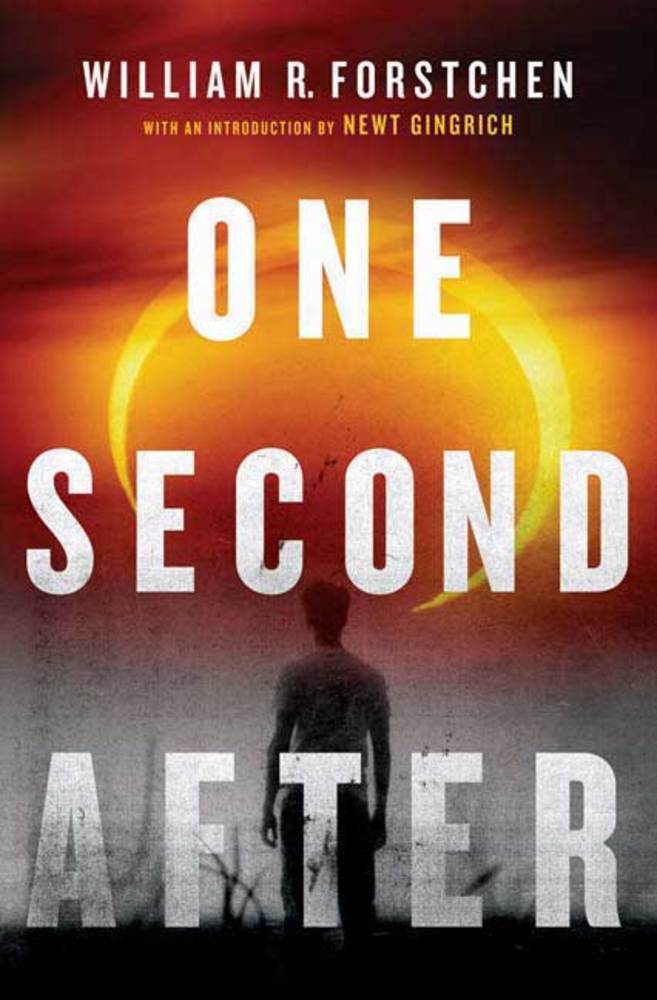
One Second After by William R. Forstchen
New York Times best selling author William R. Forstchen now brings us a story which can be all too terrifyingly real...a story in which one man struggles to save his family and his small North Carolina town after America loses a war, in one second, a war that will send America back to the Dark Ages...A war based upon a weapon, an Electro Magnetic Pulse (EMP). A weapon that may already be in the hands of our enemies.
Months before publication, One Second After has already been cited on the floor of Congress as a book all Americans should read, a book already being discussed in the corridors of the Pentagon as a truly realistic look at a weapon and its awesome power to destroy the entire United States, literally within one second. It is a weapon that the Wall Street Journal warns could shatter America. In the tradition of On the Beach, Fail Safe and Testament, this book, set in a typical American town, is a dire warning of what might be our future...and our end.
PUBLISHER'S PAGE
February 2018

Heat Wave: A Social Autopsy of Disaster in Chicago by Eric Klinenberg
On Thursday, July 13, 1995, Chicagoans awoke to a blistering day in which the temperature would reach 106 degrees. The heat index, which measures how the temperature actually feels on the body, would hit 126 degrees by the time the day was over. Meteorologists had been warning residents about a two-day heat wave, but these temperatures did not end that soon. When the heat wave broke a week later, city streets had buckled; the records for electrical use were shattered; and power grids had failed, leaving residents without electricity for up to two days. And by July 20, over seven hundred people had perished-more than twice the number that died in the Chicago Fire of 1871, twenty times the number of those struck by Hurricane Andrew in 1992—in the great Chicago heat wave, one of the deadliest in American history.
Heat waves in the United States kill more people during a typical year than all other natural disasters combined. Until now, no one could explain either the overwhelming number or the heartbreaking manner of the deaths resulting from the 1995 Chicago heat wave. Meteorologists and medical scientists have been unable to account for the scale of the trauma, and political officials have puzzled over the sources of the city’s vulnerability. In Heat Wave, Eric Klinenberg takes us inside the anatomy of the metropolis to conduct what he calls a "social autopsy," examining the social, political, and institutional organs of the city that made this urban disaster so much worse than it ought to have been.
PUBLISHER'S PAGE
December 2017
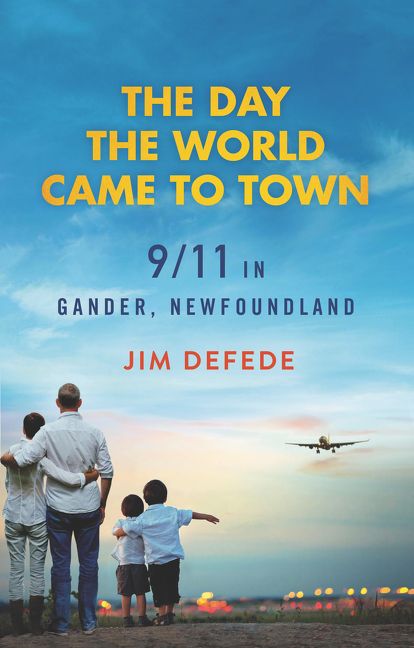
The Day the World Came to Town by Jim Defede
The True Story Behind the Events on 9/11 that Inspired Broadway’s Smash Hit Musical Come from Away
When 38 jetliners bound for the United States were forced to land at Gander International Airport in Canada by the closing of U.S. airspace on September 11, the population of this small town on Newfoundland Island swelled from 10,300 to nearly 17,000. The citizens of Gander met the stranded passengers with an overwhelming display of friendship and goodwill.
As the passengers stepped from the airplanes, exhausted, hungry and distraught after being held on board for nearly 24 hours while security checked all of the baggage, they were greeted with a feast prepared by the townspeople. Local bus drivers who had been on strike came off the picket lines to transport the passengers to the various shelters set up in local schools and churches. Linens and toiletries were bought and donated. A middle school provided showers, as well as access to computers, email, and televisions, allowing the passengers to stay in touch with family and follow the news.
Over the course of those four days, many of the passengers developed friendships with Gander residents that they expect to last a lifetime. As a show of thanks, scholarship funds for the children of Gander have been formed and donations have been made to provide new computers for the schools. This book recounts the inspiring story of the residents of Gander, Canada, whose acts of kindness have touched the lives of thousands of people and been an example of humanity and goodwill.
PUBLISHER'S PAGE
October 2017
The Unthinkable by Amanda Ripley
Half of Americans have been affected by a disaster of some kind. In big disasters, regular people are the first and most important rescuers on the scene. But very few of us know what to expect until it is too late.
By combining the stories of survivors with research into how the brain works under extreme duress, The Unthinkable tries to bring light into civilization’s darkest moments. Why do we freeze in the middle of a fire? How can we override this instinct? Why do our senses of sight and hearing change during a terrorist attack? Why are most heroes men?
In this inspiring mix of narrative, science and participatory journalism, award-winning Time Magazine writer Amanda Ripley reveals how human fear circuits and crowd dynamics work, why our instincts sometimes misfire in modern calamities, and how we can do much, much better.AUTHOR'S PAGE
Other Recommended Readings
Five Days At Memorial by Sheri FinkPUBLISHER'S PAGE